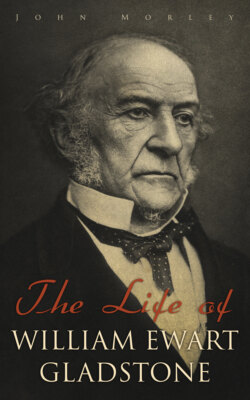Читать книгу The Life of William Ewart Gladstone - John Morley - Страница 29
На сайте Литреса книга снята с продажи.
FOOTNOTES:
Оглавление54. Henry James's Act (1883).
55. Thuc. i. 84, § 7.—'We should remember that man differs little from man, except that he turns out best who is trained in the sharpest school.'
56. Proposed by Sir R. Inglis and seconded by George Denison, afterwards the militant Archdeacon of Taunton. He was on the committee from 1834 to 1838, and he withdrew from the Club at the end of 1842.
57. Sadler is now not much more than a name, except to students of the history of social reform in England, known to some by a couple of articles of Macaulay's, written in that great man's least worthy and least agreeable style, and by the fact that Macaulay beat him at Leeds in 1832. But he deserves our honourable recollection on the ground mentioned by Mr. Gladstone, as a man of indefatigable and effective zeal in one of the best of causes.
58. Memoir of Althorp, p. 471.
59. Lord George Bentinck, chapter xviii. p. 324.
60. Report of an interview with Mr. Gladstone in 1890, in Scottish Liberal, May 2, 9, etc., 1890.
61. Daniel Whittle Harvey was an eloquent member of parliament whom the benchers of his inn refused to call to the bar, on the ground of certain charges against his probity. The House appointed a committee of which Mr. Gladstone was a member to inquire into these charges. O'Connell was chairman, and they acquitted Harvey, without however affecting the decision of the benchers. Mr. Gladstone was the only member of the committee who did not concur in its final judgment. See his article on Daniel O'Connell in the Nineteenth Century, Jan. 1889.
62. See Cobbett's Life by Edward Smith, ii. p. 287. Attwood of Birmingham seems to have voted for the motion.
